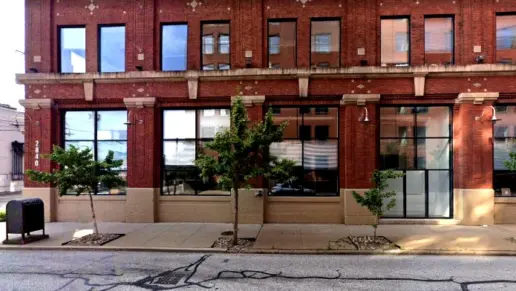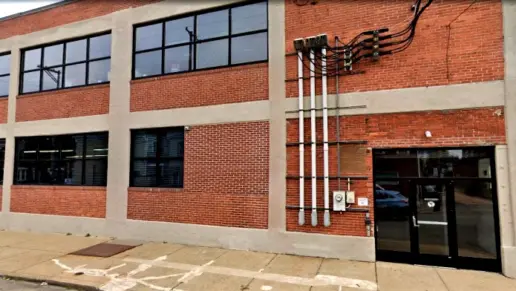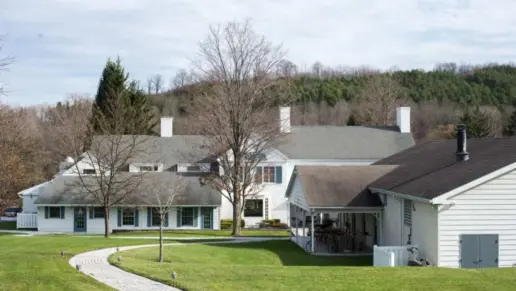I have to admit at first I was skeptical. How could this place help me? I had a habit of doing things my own way most of my life. When I got there I quickly realized that I wasn’t running the show anymore. After a day or two, I realized I didn’t want to run the show anym ...
About All In Solutions Counseling Center
All In Solutions Counseling Center provides each and every one of their valued clients with a highly personalized treatment plan, geared towards meeting all of their unique needs and preferences. All In Solutions Counseling Center offers holistic outpatient treatment to men and women who struggle with substance abuse disorders and co-occurring mental illness.
At All In Solutions Counseling Center, they whole-heartedly believe that recovery from alcoholism and drug addiction must be just as individualized as the disease itself. For this reason, they have developed a unique clinical program that focuses heavily on the individual process of each unique client. Through a step-down system, clients will undergo differing levels of care – ranging from the most intensive to the most flexible.
The clinical staff at All In Solutions Counseling Center has carefully developed a detailed clinical addiction treatment program, based off of years of personal experience and proven methodologies. They believe that all contributing factors must be adequately tackled in order for long-term sobriety to be obtained. Contributing factors typically range from co-occurring psychological disorders such as depression, anxiety, and PTSD to cross addictions such as compulsive gambling or love addiction.
 Payment Options
Payment Options
Self-pay options
Private insurance
 Levels of Care
Levels of Care
 Intensive Outpatient
Intensive Outpatient
The IOP program is mixed gender. Once a client has been clinically approved to transition into Intensive Outpatient, he or she will begin attending less days of weekly therapy, for fewer hours each day. clients in IOP attend a maximum of 15 hours to a minimum 9 hours of group therapy mixed with individual sessions. Groups focus on pertinent topics like relapse prevention, healthy relationship building, proper communication techniques, and the importance of developing future plans and goals. Individual therapy sessions focus on addressing clients underlying issues that continue to affect their everyday life. Humble Beginnings offers 3 hour therapy groups Monday through Friday in the afternoons and evenings in order to accommodate the varying schedules of their clients. Humble Beginnings IOP Program ranges from 6 to 12 weeks, depending upon the needs of each client determined through an individualized clinical evaluation. At this phase in their recovery program, clients will also be expected to begin job searching, as well as maintaining daily involvement in a 12-step program of their choosing.
 Outpatient
Outpatient
The final level of care that Humble Beginnings offers is Outpatient Treatment, their OP program consists of one individual and one group session, totaling 4 hours of therapeutic service per week. Clients can remain in Outpatient treatment for as long as they need the extra support in their early recovery. Humble Beginnings typically recommends clients who have completed the IOP Program to remain in Outpatient treatment for a minimum of 4 weeks before leaving treatment all together.
 12-Step
12-Step
12-step programs are addiction recovery models based on Alcoholics Anonymous (AA). A number of substance abuse programs (including some drug and alcohol rehab centers) use the 12 steps as a basis for treatment. Beginning steps involve admitting powerlessness over the addiction and creating a spiritual basis for recovery. Middle steps including making direct amends to those who've been hurt by the addiction, and the final step is to assist others in addiction recovery in the same way. 12-Step offshoots including Narcotics Anonymous (NA), Cocaine Anonymous (CA), Dual Recovery Anonymous (DRA), Sex and Love Addicts Anonymous (SLAA) and Gamblers Anonymous (GA).
 Aftercare Support
Aftercare Support
Completing a drug or alcohol rehab program shouldn't spell the end of substance abuse treatment. Aftercare involves making a sustainable plan for recovery, including ongoing support. This can include sober living arrangements like halfway houses, career counseling, and setting a patient up with community programs like Alcoholics Anonymous (AA) or Narcotics Anonymous (NA).
 Partial Hospitalization Program
Partial Hospitalization Program
A partial hospitalization program (PHP) is a short-term form of intensive rehab, usually for those with acute symptoms that are hard to manage but don’t require 24-hour care. PHPs have structured programming (i.e. individual and/or group therapy), and usually meet 3-5 days a week for around 6 hours (i.e. 9am-3m). Some PHPs are residential (patients sleep on site) and some are not, so patients sleep at home. PHPs can last from 1-6 months, and some offer transportation and meals.
 Programs
Programs
 Adult program
Adult program
 Program for men
Program for men
 Program for women
Program for women
 Young adult program
Young adult program
 Settings & Amenities
Settings & Amenities
-
Private setting
-
Meditation room
 Treatment
Treatment
 Alcoholism
Alcoholism
The goal of treatment for alcoholism is abstinence. Those with poor social support, poor motivation, or psychiatric disorders tend to relapse within a few years of treatment. For these people, success is measured by longer periods of abstinence, reduced use of alcohol, better health, and improved social functioning. Recovery and Maintenance are usually based on 12 step programs and AA meetings.
 Drug Addiction
Drug Addiction
Drug rehab in Pennsylvania is devoted to the treatment of addiction. Levels of care, treatment methods, and settings differ, but the aim of each program is to end drug dependency and empower participants to achieve long-term recovery.
 Dual Diagnosis
Dual Diagnosis
They are a dual-diagnosis facility and provide professional mental health care to those who require it. There exists a complex relationship between substance abuse disorders and mental health issues. Sometimes clients will have a difficult time recovering if they have untreated and underlying symptoms of depression, anxiety or PTSD. It is crucial that all issues, addictions and disorders are treated effectively and concurrently. They have an on-site psychiatrist, available to diagnose all underlying disorders and pharmaceutically treat them when deemed appropriate.
 Opioid Addiction
Opioid Addiction
Opioid rehabs specialize in supporting those recovering from opioid addiction. They treat those suffering from addiction to illegal opioids like heroin, as well as prescription drugs like oxycodone. These centers typically combine both physical as well as mental and emotional support to help stop addiction. Physical support often includes medical detox and subsequent medical support (including medication), and mental support includes in-depth therapy to address the underlying causes of addiction.
 Substance Abuse
Substance Abuse
Substance rehabs focus on helping individuals recover from substance abuse, including alcohol and drug addiction (both illegal and prescription drugs). They often include the opportunity to engage in both individual as well as group therapy.
 Clinical Services
Clinical Services
 Cognitive Behavioral Therapy
Cognitive Behavioral Therapy
Cognitive Behavioral Therapy (CBT) is a therapy modality that focuses on the relationship between one's thoughts, feelings, and behaviors. It is used to establish and allow for healthy responses to thoughts and feelings (instead of unhealthy responses, like using drugs or alcohol). CBT has been proven effective for recovering addicts of all kinds, and is used to strengthen a patient's own self-awareness and ability to self-regulate. CBT allows individuals to monitor their own emotional state, become more adept at communicating with others, and manage stress without needing to engage in substance abuse.
 Creative Arts Therapy
Creative Arts Therapy
Creativity is inherently healing, and can help those in recovery express thoughts or feelings they might not otherwise be able to. Creative arts therapy can include music, poetry/writing, painting, sculpting, dance, theater, sandplay, and more. Unlike traditional art, the final product matters far less than the experience of creation and expression itself.
 Dialectical Behavior Therapy
Dialectical Behavior Therapy
Dialectical Behavior Therapy (DBT) is a modified form of Cognitive Behavioral Therapy (CBT), a treatment designed to help people understand and ultimately affect the relationship between their thoughts, feelings, and behaviors. DBT is often used for individuals who struggle with self-harm behaviors, such as self-mutilation (cutting) and suicidal thoughts, urges, or attempts. It has been proven clinically effective for those who struggle with out-of-control emotions and mental health illnesses like Borderline Personality Disorder.
 Experiential Therapy
Experiential Therapy
Experiential therapy is a form of therapy in which clients are encouraged to surface and work through subconscious issues by engaging in real-time experiences. Experiential therapy departs from traditional talk therapy by involving the body, and having clients engage in activities, movements, and physical and emotional expression. This can involve role-play or using props (which can include other people). Experiential therapy can help people process trauma, memories, and emotion quickly, deeply, and in a lasting fashion, leading to substantial and impactful healing.
 Family Therapy
Family Therapy
Addiction truly is a family disease – and not merely because the devastation that addiction causes will touch everyone involved. Families of recovering addicts require care and support of their own, in order to heal alongside their loved one while learning to support them in the healthiest and most helpful way possible. They employ family therapy sessions and offer support groups to the families of their clients to help them to further understand the disease of addiction, while simultaneously learning how to best support their loved ones on their personal journeys of recovery.
 Group Therapy
Group Therapy
Group therapy is any therapeutic work that happens in a group (not one-on-one). There are a number of different group therapy modalities, including support groups, experiential therapy, psycho-education, and more. Group therapy involves treatment as well as processing interaction between group members.
 Individual Therapy
Individual Therapy
In individual therapy, a patient meets one-on-one with a trained psychologist or counselor. Therapy is a pivotal part of effective substance abuse treatment, as it often covers root causes of addiction, including challenges faced by the patient in their social, family, and work/school life.
 Life Skills
Life Skills
Life skills trainings involve all the skills a person must have in order to function successfully in the world. These include time management, career guidance, money management, and effective communication. Truly successful addiction recovery is based on the ability to not only live substance-free, but to thrive. Life skills teaches the practical necessities of functioning in society, which sets clients up for success in life, and therefore sobriety.
 Motivational Interviewing
Motivational Interviewing
Motivational Interviewing (MI) is a clinical approach to helping people with substance abuse issues and other conditions shift behavior in positive ways. It is more goal-oriented than traditional psychotherapy, as MI counselors directly attempt to get clients to consider making behavioral change (rather than wait for them to come to conclusions themselves). Its primary purpose is to resolve ambivalence and help clients become able to make healthy choices freely.
 Trauma Therapy
Trauma Therapy
Trauma therapy addresses traumatic incidents from a client's past that are likely affecting their present-day experience. Trauma is often one of the primary triggers and potential causes of addiction, and can stem from child sexual abuse, domestic violence, having a parent with a mental illness, losing one or both parents at a young age, teenage or adult sexual assault, or any number of other factors. The purpose of trauma therapy is to allow a patient to process trauma and move through and past it, with the help of trained and compassionate mental health professionals.
 Accreditations
Accreditations

Joint Commission
The Joint Commission, formerly known as JCAHO, is a nonprofit organization that accredits rehab organizations and programs. Founded in 1951, the Joint Commision's mission is to improve the quality of patient care and demonstrating the quality of patient care.
Joint Commission Accreditation: Yes
Accreditation Number: 592976

State License
State Licenses are permits issued by government agencies that allow rehab organizations to conduct business legally within a certain geographical area. Typically, the kind of program a rehab facility offers, along with its physical location, determines which licenses are required to operate legally.
State License: Pennsylvania
License Number: T3VX6601


